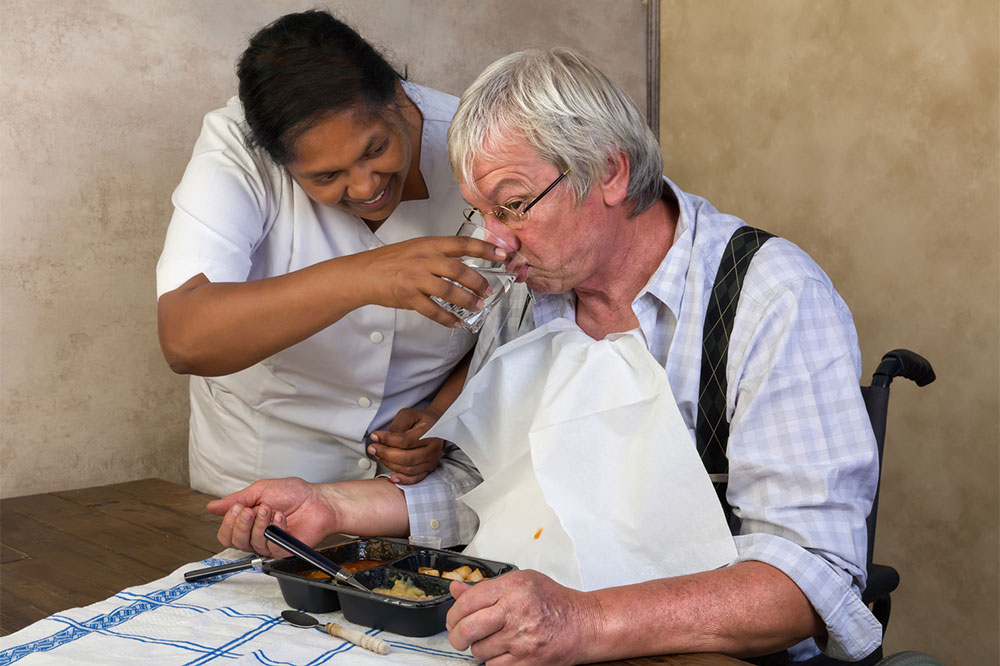Parkinson’s disease – Causes, symptoms, diagnosis and more

As we age, our body changes both physically and mentally. We become prone to a lot of diseases. One of them is Parkinson’s disease. People who develop Parkinson’s at times begin to show early signs from the age of 50. These early symptoms are mild and can go unnoticed. Hence, it is important to stay informed about Parkinson’s disease. Read to know more.
What is Parkinson’s disease?
Parkinson’s disease is a disorder of the brain. The disease affects the nerve cells that are in charge of producing dopamine. It causes tremors, stiffness, loss of balance, and loss in coordination. The disease progresses over time and leads to behavioral changes, depression, memory loss, and even fatigue.
What are the causes and risk factors of Parkinson’s disease?
Parkinson’s disease is the result of brain cells dying or becoming impaired. These cells produce dopamine and if the brain cells produce low amounts of the chemical, it can affect the movement of the body. Unfortunately, even science does not know the reason behind the degradation of the neurons. Despite this, they have managed to note down possible causes and risk factors for Parkinson’s disease.
- Genetic predisposition
Research has shown that people who have Parkinson’s disease, tend to have a certain genetic mutation. But, even this is uncommon and will be seen in extremely rare cases. It’s also shown that there is a possibility of having Parkinson’s if any close relative has it. - Environmental triggers
Certain environmental factors could lead to Parkinson’s later in life. But, the risk factor is rather small. - Presence of lewy bodies
According to research, clumps of substance in the brain are markers of possible Parkinson’s disease. - Age
One of the factors that influence the occurrence of Parkinson’s is age. People develop this neurodegenerative disorder once they hit the age of 60. - Gender
Research and study have shown that men are more likely to develop Parkinson’s than their female counterparts.
What are the symptoms of Parkinson’s disease?
There are major and minor symptoms when it comes to Parkinson’s disease.
The four major symptoms are:
- Stiffness
- Slow movement
- Loss of balance and coordination
- Tremors throughout the body
Though the progression of the disease differs for different people, these symptoms are commonly seen. There are other minor symptoms too. These include depression, urinary issues, sleep disorders, and trouble with swallowing, eating, and talking.
How to diagnose Parkinson’s disease?
Diagnosing Parkinson’s disease can be rather difficult. This is because Parkinson’s does not have any fixed blood or lab tests that can confirm the diagnosis, especially when it comes to nongenetic cases.
Not to mention, there are a whole lot of different conditions and disorders that have similar symptoms, which makes it very difficult to diagnose Parkinson’s disease.
When it comes to confirming a Parkinson’s disease diagnosis, the way to do it is by considering the individual’s medical history and neurological function based on examinations.
What are the effective treatment options for Parkinson’s disease?
While there is no definitive cure for Parkinson’s disease, the symptoms can be managed with prescription medication. Different medication tackles different symptoms. Certain medication is prescribed to increase dopamine, while some manage the level of the chemical in the brain. Another medication is used to monitor the non-motor symptoms. Besides this, there is a therapy called L-dopa which is used mainly to increase the level of dopamine in the brain. L-dopa should never be stopped without consulting the doctor. Other therapies such as speech and physical therapy can also be used to manage the symptoms.
==

